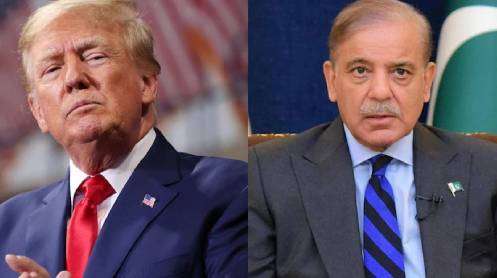WASHINGTON, Aug 1: US President Donald Trump has imposed a 19% tariff on imports from Pakistan — revised down from a previously proposed 29% — as part of a sweeping wave of new duties on dozens of countries, following the expiration of his self-imposed tariff deadline.
The announcement came just a day after a Pakistani delegation led by Finance Minister Muhammad Aurangzeb concluded a trade agreement in Washington, DC, aimed at reducing tariffs. While the deal’s specific terms remain undisclosed, Trump said the US would assist Pakistan in exploring “massive oil deposits” as part of broader economic cooperation.
The executive order outlines tariffs ranging from 10% to 50% for 69 trading partners, with rates taking effect within seven days. Canada faces a 35% tariff on specific goods tied to fentanyl enforcement, while India and Brazil will be hit with 25% and 50% duties respectively. Taiwan and Switzerland are also subject to steep hikes, at 20% and 39%.
Countries without finalized agreements face a standard 10% tariff, though Trump hinted that rate may rise. He emphasized that some nations “failed to align sufficiently” with US economic and national security priorities despite negotiations.
In a notable exception, Mexico secured a 90-day reprieve from planned 30% tariffs on most non-automotive and non-metal goods after a call between Trump and President Claudia Sheinbaum. However, Mexican steel, aluminum, and autos will still face up to 50% tariffs under fentanyl-related trade actions.
Trump’s order coincides with growing legal scrutiny. Federal judges have questioned the legality of invoking the 1977 International Emergency Economic Powers Act to justify tariffs on economic grounds. The Court of International Trade previously ruled the tariffs exceeded presidential authority.
Consumer prices are already showing an uptick. US Commerce Department data reveals significant price hikes in home goods, recreational items, and clothing in June, signaling inflationary pressure from the tariffs.
As the global market absorbs the impact, China faces an August 12 deadline to finalize a deal with Washington to avert further duties. A US official confirmed that negotiations with Beijing and other partners are “making progress.”
Markets reacted cautiously, with modest dips in stocks and futures across Asia on Friday morning.







